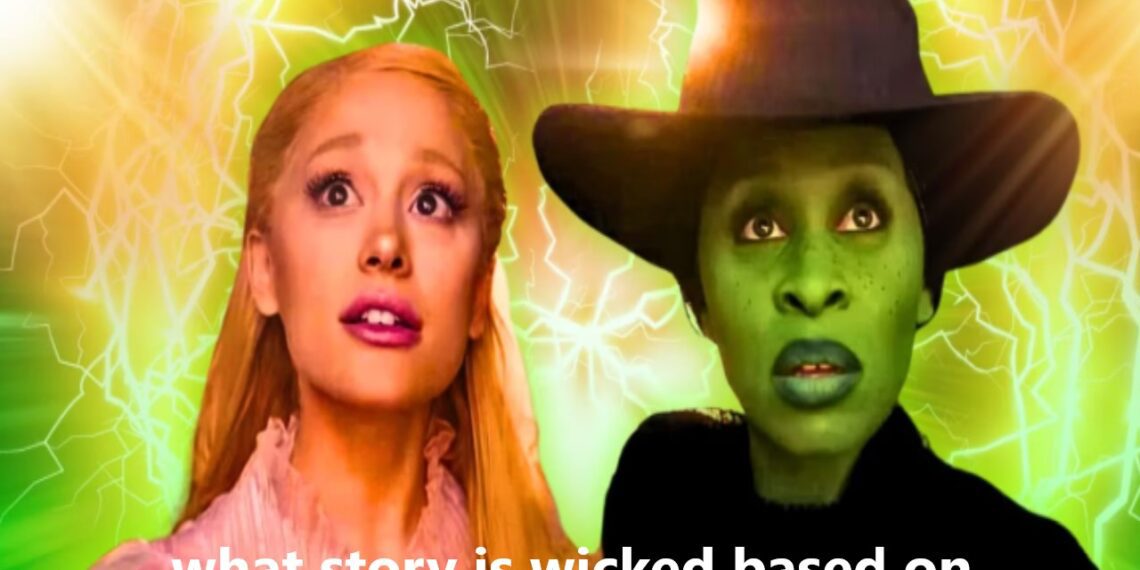One of the most successful and beloved musicals of all time, “Wicked” has enchanted millions of people around the globe with its breathtaking story, music and characters. But many fans are left wondering, What is “Wicked” based on? So this question brings us back to the origins of a literary classic that reinvents the world of Oz in a way that never has been before. In this article, we’ll get into the story that inspired “Wicked,” discuss its origins from the original “The Wonderful Wizard of Oz,” and reveal how it became the cultural landmark it changed into.
The Source Material: A Novel by Gregory Maguire
“Wicked” is based on Gregory Maguire’s 1995 novel, “Wicked: The Life and Times of the Wicked Witch of the West.” Maguire’s book is a revisionist version of an American classic, L. Frank Baum’s “The Wonderful Wizard of Oz.” While the Baum story is “about” Dorothy’s adventure in Oz, Maguire’s is “about” the untold story of Elphaba, the Wicked Witch of the West.
Maguire reframes Elphaba not as a villain but an antiheroine, letting us see that the Wicked Witch is a strong if misunderstood character with motives and a tragic backstory. This recontextualisation disrupts the cliché “good versus evil” storyline, humanising Elphaba as a person who is oppressed and victimised by her prejudice, politics and societal conditioning.
The Link to “The Wonderful Wizard of Oz”
The world of Maguire’s novel expands on Baum’s, but it also brings the focus off Dorothy, the Scarecrow, the Tin Woodman and the Cowardly Lion in order to tell the story of the witches of Oz: characters like Glinda (the Good Witch) and the Wizard are reimagined in ways that open up new dimensions to the more familiar tale.
In Baum’s original story, the Wicked Witch of the West was presented as a one-note villain up against Dorothy, fixated on seizing the girl and her ruby slippers. Maguire turns this narrative on its head, posing probing questions:
What made Elphaba “wicked”?
- Was her evilness for real, or was she a victim of her time and circumstances?
- But seen through the prism of this lens, the tale becomes a sharp political statement about morality, power and the ramifications of social ostracization.
From Page to Stage: The Musical adaptation
In 2003, the book was turned into the musical Wicked, with music and lyrics by Stephen Schwartz and a book by Winnie Holzman. The stage version sanitized some of the darker elements of Maguire’s narrative, creating a through line based on the friendship between Elphaba and Glinda.
The musical embraces a more positive tone, focusing on the importance of acceptance, uniqueness, and the ability to choose. Hit songs such as “Defying Gravity” and “Popular” have become ingrained in the minds of audiences, worldwide.
What Makes “Wicked” Resonate With Audiences
This is where Wicked gets it right, its range is both emotional and relational. By reframing a familiar narrative from a new perspective, it inspires audiences to challenge their own beliefs about right and wrong.
That it will even allow forced smiles to wash over the face of Elphaba, in a separate kingdom of her making, might make the story seem cliché but it is not; it is a journey, one of seeking acceptance and standing your ground that is both inspiring and relatable. Just as Glinda goes from being a vain figure to one who possesses more self-awareness, that character development greatly enhances the plot.
Conclusion
So, what is “Wicked” based on? At its core, Wicked is one part homage to Gregory Maguire’s novel, and one part nod to L. Frank Baum’s timeless classic, resulting in something altogether new. It’s a tale of identity, strength and the duality of mankind, all played out through the magical prism of Oz.
So whether you love the novel, the musical, or the original Oz story, Wicked gives you a new view and still can encourage and amuse fans across the globe.





